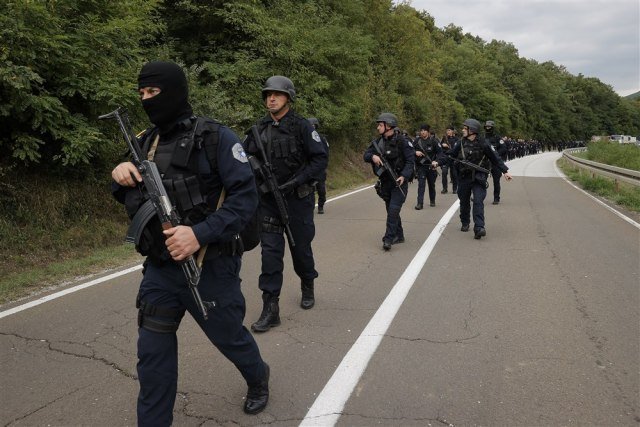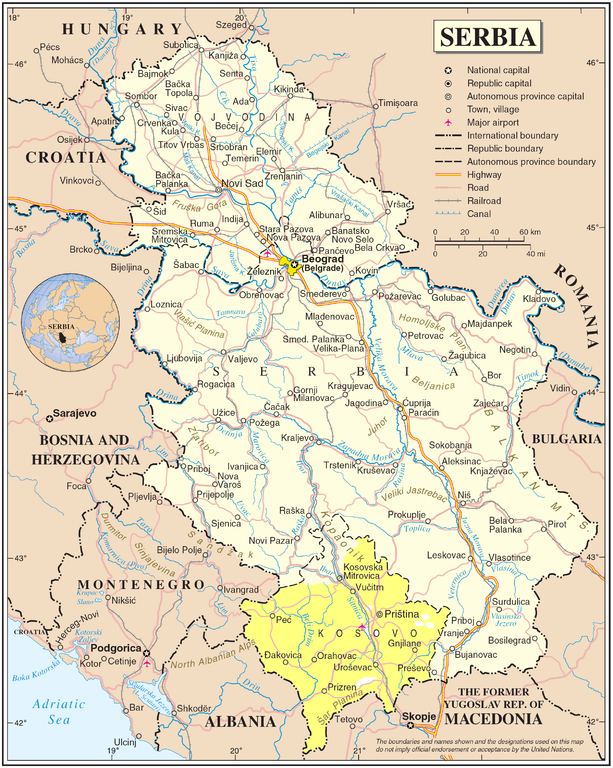After 300 NATO-trained Kosovar military police officers occupied the northern city of Kosovska Mitrovica in southern Serbia/Kosovo in early December, the Serbian president is looking to send the military into the region under United Nations Sec. Council Resolution 1244.
For most of the world, the above paragraph will be nearly untranslatable, but represents the closet skeletons of the Balkans War’s poorly-orchestrated conclusion in the 90s springing out on an unstable Europe.
Last Thursday, Serbian President Aleksandar Vuvic welcomed Admiral Stuart Munsch, the commander of the NATO Allied Joint Forces Command, in Belgrade to ask for protection of ethnic Serbs in the north of what some nations call Kosovo, and others call southern Serbia, an area dominated by ethnic Albanians. The ethnic element cannot be understated.
“We want to see peace and stability more than anything. We just ask you to protect our people in Kosovo-Metohija in line with the Kumanovo Agreement and UN SC Resolution 1244,” Vucic noted.
UN SC Res. 1244 sought to end the conflict between Serbia and Kosovo by demilitarizing the Kosovo Liberation Army (KLA) and ordering a phased withdrawal of Serbian forces, which retained the right to re-enter the country if authorized by an international military presence, to carry out functions contained in the annex of the resolution such as protecting patrimonial sites, border crossings, and ethnic Serbs.
In 2008, Kosovo unilaterally declared independence from its de-facto capital of Pristina, which not all of Europe or the world at large recognizes. According to this independence, which the US and NATO support, the UN SC Res. 1244 is no longer applicable.
“As of this morning, the prime minister of the contested state of Kosovo, Albin Kurti, has openly called for direct NATO intervention in Kosovo,” Rick Rozoff, a retired journalist and expert on NATO activities, told WaL on the 13th. “This is of course 23 years after the last direct NATO intervention in Kosovo which was 78 days of bombing in what was the former Republic of Yugoslavia”.
“NATO came in shoulder to shoulder with the KLA which has been linked to every sort of criminal skullduggery,” he continued. “After the KLA and NATO came in, ostensibly under the name of preventing ethnic cleansing, the KLA criminal underworld started terrorizing and persecuting and driving out ethnic minorities, and not just Serbs but also the Roma, and also some ethnic Bosnians, and what were called Egyptian Turks”.
“As many as a quarter-million Roma were driven out and probably a comparable number of Serbs and others. What remains is some 140,000 ethnic Serbs in the north of Kosovo and that’s the contested area now”.
As of Tuesday, Serbs in the Kosovar territory of Metohija have been blocking roads for 11 days in protest of the arrest of a pair of Serb police officers who haven’t been allowed to speak with their attorneys.
PICTURED ABOVE: 300 Kosovo police enter the city of Kosovska Mitrovica. PC: EPA-EFE/VALDRIN XHEMAJ
If you think the stories you’ve just read were worth a few dollars, consider donating here to our modest $500-a-year administration costs.




